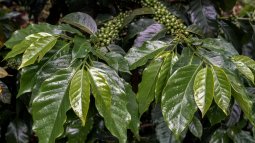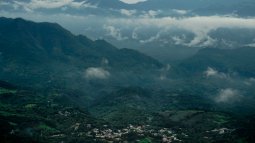It would seem logical that the smallest Central American coffee-growing country would produce microlots, but historically, much of the coffee was blended and sold to mills, without much lot differentiation and separation. The rise of specialty coffee in El Salvador has inspired many producers to start to identify and isolate individual varieties, and to experiment with sorting and processing, as a way of attracting buyers and getting higher prices, but access to those resources can still be difficult for smaller growers.
For the past few years, Café Imports green buyer Piero Cristiani—who is from El Salvador, and whose mother has a long history in coffee there—has embarked on a project designed to identify, reward, and bring to market the exceptional results of the hard, innovative work that producers are increasingly interested in doing here.
Focusing on the region of Chalatenango, Piero has partnered with a cupper and a local mill to buy small, select microlots from producers—some separated by variety, some by process, and some by both. We are buying the coffee in parchment and doing the ruling and final sorting and bagging ourselves, which allows for more quality control as well as the ability to package some of these very special small lots in custom 35-kilo Pequeños bags, to create more widespread access to these coffees to roasters.
María Julia Pleitéz has a single manzana planted with about 3,000 trees of Pacas, Bourbon, and Catuai varieties. She produces just between 6–9 quintales, all Washed coffees: The coffee is picked ripe, depulped, and fermented dry for 12 hours before being washed and spread on raised beds for 10–14 days.
Her production was much lower for the 2016/2017 harvest, just 6 quintales, but for the past 4 years that she has been in "this beautiful world," as a coffee producer, she has seen that there is the possibility to grow and sell more coffee, and to make a sustainable livelihood from her farm. She explains that her costs are high because she is a widow tending to the farm by herself, and she hires workers during the harvest season to help during the peak.
We are proud to offer these micro-microlots, and can’t wait for you and your customers to experience the delicious stuff that comes in these small packages.
For more information about coffee production in El Salvador, visit our El Salvador Origin Page.



